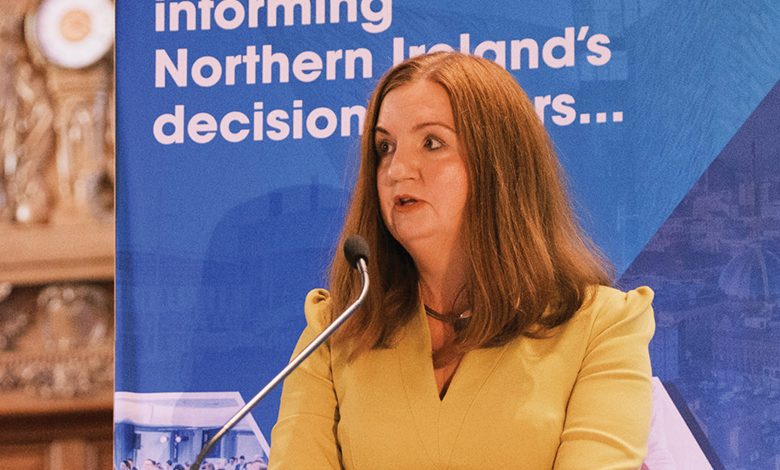
Darren O’Rourke TD: Sinn Féin’s energy priorities
15th December 2023
Delivering a decarbonised gas network
20th November 2023Back to the future: The opportunities of a net zero Northern Ireland

Head of the Northern Ireland Civil Service Jayne Brady says that alongside the economic opportunity, the societal and environmental necessity for achieving a net zero future for Northern Ireland is of “paramount importance”.
Highlighting the parallels of heavy flooding across certain counties, just days after Northern Ireland played host to what has been described as the most influential business delegation ever to visit from the US, Brady states: “The climate crisis and the net zero opportunities are real and here today.”
The Head of the Civil Service acknowledges the scale of the challenge which exists. The Climate Change Act mandated a 48 per cent reduction in greenhouse gas emissions by 2030 (from the 1990 baseline), meaning that emission reduction in the next seven years will need to be equivalent to or greater than what has been achieved in the past 33 years.
The Act also mandated the introduction of Northern Ireland’s first three carbon budgets by the end of December 2023. With draft budgets currently open to public consultation. Brady says: “It will be no surprise to hear that we are not on track to deliver the carbon budget reductions for 2023. However, we must find ways to accelerate our progress on reducing greenhouse gas emissions, a fundamental part of which is accelerating the delivery of the vision in the energy strategy.”
The Head of the Civil Service says that the complexity and scale of the task cannot be understated but adds: “The prize for achieving net zero is massive. The opportunities arising from solving energy decarbonisation have the potential to return the region to being a powerhouse of these islands just like it was 100 years ago.
“Importantly, the skills that we need to do this are similar to those that we demonstrated back then. Innovation is in our DNA, and it is truly ‘back to the future’.”
While addressing the climate crisis is a major pillar of the push for decarbonisation, an equal driving force, according to Brady is the need to move away from Northern Ireland’s dependence on importing energy, specifically fossil fuels. Describing the region as a “hostage to fortune”, Brady says “we need to become a ‘price maker’ for all of the energy that we use here and pay a fair price for the renewable energy that we produce locally”.
Brady acknowledges that the transition away from fossil fuels will be disruptive and describes the economic impact of the transition on consumers as a legitimate concern.
“We must find ways to support affected communities and industry during this transition to renewable energy – it must be a just transition, leaving no one behind,” she says.
“Without a just transition, vulnerable and marginalised people and communities may experience a downside in the net zero pathway rather than benefit in the upside of a more vibrant economy, higher value jobs, more affordable energy, and the eradication of fuel poverty.
“Behavioural change is notoriously difficult, and we must find ways to incentivise and facilitate these changes on a massive scale. We need both the carrot and the stick.”
On the economic potential of net zero, Brady believes that “public, private, and academic collaboration” is the key to unlocking the region’s great potential, while also increasing the health and prosperity of society.
“The responsibility for us all is to find the ways to collectively overcome the political, economic, and environmental challenges to progress our energy future. This requires new thinking about how we do business and how we promote our excellent resources and local talent.
“At present, we have a competitive edge in many key areas, and we must continue to build on that to stay ahead of the competition.”
Developing solutions to meet decarbonisation target presents a massive economic opportunity, but one that needs acted on urgently, the Head of NICS says.
Stressing that the opportunity is one that will not wait, and which will not return again, she concludes: “Twenty-five years on from the Belfast/Good Friday Agreement, the coming years must all be about seizing the opportunity to make everyone here healthier and more prosperous.”
